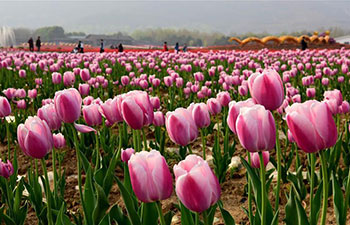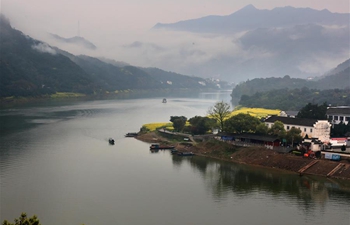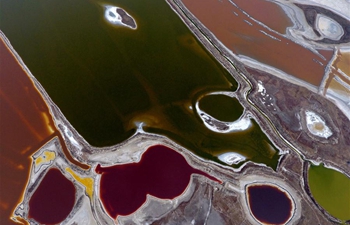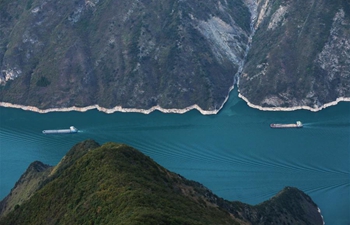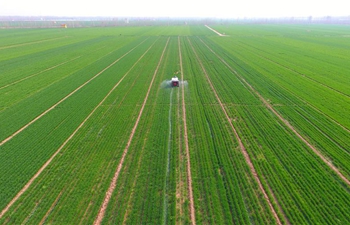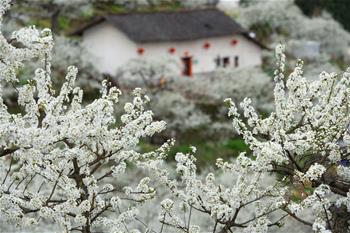
Photo taken on March 31, 2019 shows the scene at the Near East and North Africa Land and Water Days 2019 in Cairo, Egypt. The Near East and North Africa Land and Water Days 2019 convened by Food and Agriculture Organization (FAO) of the United Nations was started in Cairo on Sunday. (Xinhua)
CAIRO, March 31 (Xinhua) -- The 2019 Land and Water Days- Near East and North Africa (NENA) Conference convened by Food and Agriculture Organization (FAO) of the United Nations was started in Cairo on Sunday.
The five-day event attracted around 400 experts, practitioners, government officials, policy makers and development partners from countries of the Near East and North Africa and other regions.
The conference aims to share knowledge and cover topics about solving water and food scarcity, and governance of land desertification and degradation due to drought and climate change, in addition to other relevant issues concerning the livelihoods of all mankind.
Abdessalam Ould Ahmed, FAO assistant director-general and regional representative for the Near East and North Africa, emphasized that the problems to be discussed in the coming days are extremely urgent for this region, as they may hamper economic growth and exacerbate poverty, employment and migration problems, ultimately undermining regional peace and stability.
Ahmed praised the enormous efforts and investments mobilized over the past decades, saying that more efforts are needed to integrate and spread to more communities across the region.
Mohamed Abdel Aty, Egyptian Minister of Water Resources and Irrigation, pointed out the ponderance of these issues, especially for water protection.
"By 2020, the whole world would use renewed water," Mohamed stressed. "However, ground water in Egypt is still not renewed, and hot waves as well as the rise of sea level all indicate challenges in water management for the lack of resources."
In 2013, FAO launched the Water Scarcity Initiative (WSI) which has been working as a comprehensive approach to facilitate sustainable management of water resources in NENA region.
The initiative was designed to better implement efforts in member countries to demonstrate, communicate and transfer experience that may solve water scarcity problems in WSI-countries.
"Moving from research and technical solutions to application in farmers' fields requires initiatives that encourage the synthesis and sharing of practical knowledge on land and water management," Ahmed explained.








